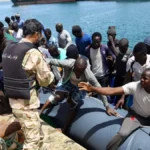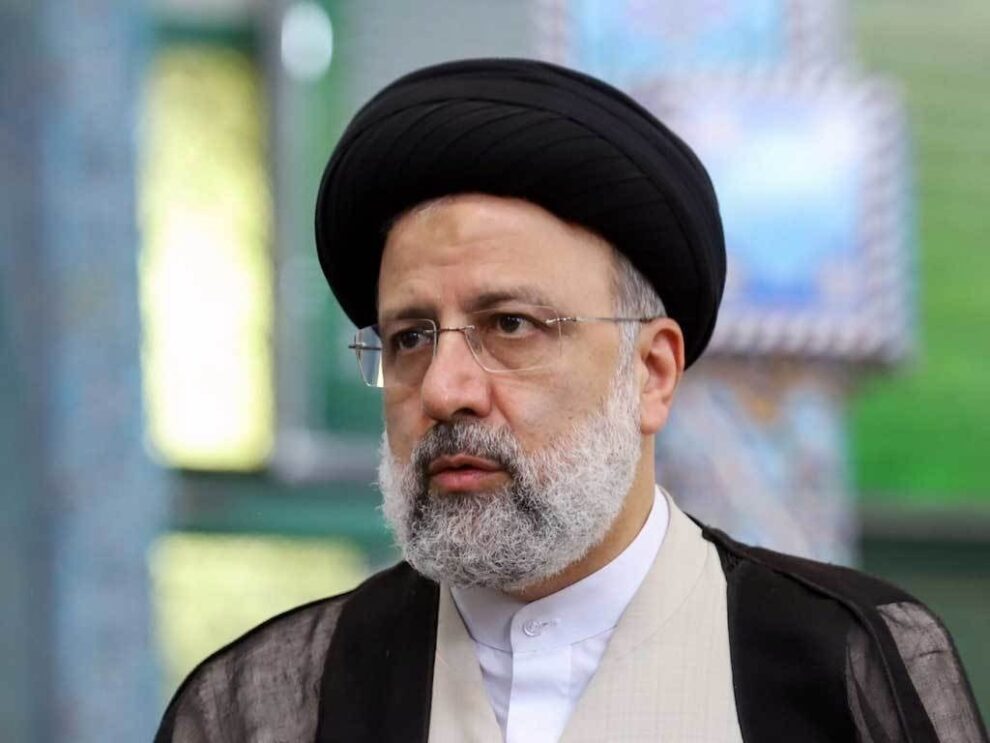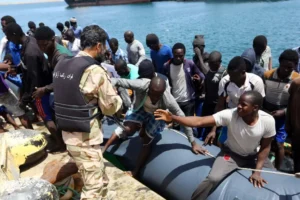Iranians have been recently knocking on the closed doors of North Africa. They were trying to return the region by restoring severed diplomatic relations with key countries, especially with Morocco and Egypt.
In a moment of great delusion, Tehran believed that it could achieve major breakthroughs in North Africa to match its progress in the rest of the African continent. In its delusional ambition it sought to substitute its role for the financially-backed proselytising of the Saudi Wahhabi project in Africa. The authors of that particular project, which had made important strides, hurried to pack and leave after the September 2001 Twin Tower attacks, having realised that Americans were serious about not willing to put up with such a behaviour from the Saudis.
The Iranians found themselves rid of political and financial competition. All they had to do was to change the slogans and the proselytising actors. One eventually ended up with African versions of Hezbollah.
The Iranians believe that the charm offensive, which had served the Saudis so well, could also work for them in North Africa. There is no doubt that diplomatic estrangement is not the normal state of affairs between countries. But when a country finds its national security under a multi-faceted attack, what can it do?
If an Iranian school in a North African capital serves all kinds of purposes except that of a real school, is the country in question to blame for severing relations with Tehran?

And if the Iranian quest for sectarian conversion of the local population is a proven reality, whether it is within the borders of the country concerned or through easier access to that country’s expatriates in Europe, Tehran does not leave many options for any state which wants to safeguard its social and political security. It is all-the-more so that Iran hardly conceals its strategic intent to export its revolution.
It is too early to judge the results of Iran’s “zero problem”-policy. Basically, there is no such thing as an Iranian “zero problem”-policy in the eastern flank of the Arab world. Iran just manages its crises with the countries of that region taking advantage of the UAE’s desire to defuse the various crises while Saudi Arabia tries to catch up with the process.
An Iranian geographic line can be drawn between the two distinct policies of “crisis management” in the Arab Mashreq, and that of the “zero problems” in Arab North Africa. This line crosses the border between Egypt and Gaza, as the Palestinian issue is at the heart of Tehran’s push to remain part of the trouble-making mechanisms, which buttress its encroachment, especially via the Islamic Jihad and Hamas in Gaza. The line then moves south, to eschew Egypt before going deep into Sudan’s Nile Valley so as to protect its Houthi project and try to influence Saudi Arabia.
Failure lies at the root of Iran’s diplomatic activity and its knocking on doors. The Iranians were unable to achieve significant inroads in North Africa for various reasons. Among these is that they do not have a regional sectarian support base there, as is the case in the eastern part of the Arab world. The Iranians have not enjoyed the needed human factor that would have allowed them to try to impose a fait accompli. This explains their early interest, for example, in Iranian marriages with men and women from North African countries.
The Iranians faced faith-based religious and social resistance in Morocco, on the western edge of the Arab world. That resistance has been centred around the city of Fez based on allegiance to the the kingdom’s Alawi leadership. This resistance, to the astonishment of the Iranians, was so deeply-entrenched that it prevented their sectarian expansion in the Sahel, the Sahara and the Senegal River basin.
The religious authority for this human mass of peoples is in Fez, and it is not possible to consider replacing it socially before looking at it politically from all kinds of angles.
The Iranians counted on the political and social disruptions caused by the “Arab spring” and the Muslim Brotherhood’s inroads towards power. At one point, the Brotherhood seemed to dominate all of North Africa. It sought then to replace the traditional Sufi religious values with a Muslim Brotherhood system premised on cooperation with Iran. The issues promoted by the Brotherhood topped the agenda and the “spring” seemed to be ever-expanding, so why not take advantage of the opportunity?
But the Brotherhood’s rule failed in more than one place. The fateful blow was the fall of the former Egyptian President Mohamed Morsi’s regime after a popular uprising in which the army intervened decisively. The Muslim Brotherhood’s reign faced moral bankruptcy in Tunisia before President Kais Saied dealt it a fatal blow. The resounding fall of the Brotherhood in Morocco followed a decade-long rule. There is a mix of vested interests and Muslim Brotherhood influence holding the reins of power in Libya. But Field Marshal Khalifa Haftar had stood in the way of the Brotherhood since the beginning. The Brotherhood in Algeria, today, is one of the tools employed by the government and which the military uses to distract its opponents.
There is another important dimension to Tehran’s “zero-problem” policy. The ambitions of the great powers collide in Africa. Iran can maybe establish constituencies that are politically loyal to Africa’s Hezbollahs. But it does not have the financial means nor the political capabilities to expand its clout compared to major powers. Can Iran achieve what France, the historic power in Africa, failed to achieve? How can it compete with the Chinese or Americans? How can it even vie for influence with the Turks, who are actually a small player?

However, there is no underestimating the Iranian-Russian relationship. The Iranians and the Russians are coordinating the moves to a great extent in many places in the world. It is not excluded that they could coordinate their activities at different levels in Africa in general, and in North Africa in particular. Wagner is a Russian-paid militia, while Hezbollah’s brigades are an Iranian-financed militia. The models are not very dissimilar. The difference lies in the fact that Iran’s ambitions go beyond expediency as they seek to achieve profound changes that would make its African presence, especially in North Africa, a permanent sectarian fixture.
On the other hand, one should not underestimate Iran’s interest in North Africa. Diplomatic relations may be severed with Morocco and Egypt, but Iran enjoys a stock of sympathy in other countries of the region. It is marketing itself through a narrative based on Hezbollah’s posturing, confrontation with Israel and normalisation as well as support for the Palestinian cause. Tunisians, for instance, are enthusiastic about these issues and view Iran from this perspective. The Iranians are trying to draw more interest by cultivating Tunisian intellectuals. The lobby of one of the major hotels in Tunis, not far from the Tunisian foreign ministry’s headquarters, would be occasionally buzzing with Iranians. One would have the impression that someone is filming a movie about Tehran in an oriental setting, as is customary when films are shot in Arab locations when they are telling stories which are taking place in Iran or Afghanistan.
Some Egyptian artists and intellectuals also travel to Iraq at the invitation of Iranian or pro-Iranian institutions. Between talk about the war on extremism, ISIS, and other issues related to American hegemony and Israeli aggression, the Iranian worldview is put on display.
A North African intellectual feels Iran is closer to him than is Israel or the United States. The developments in the eastern part of the Arab world are secondary to him as long their outcome runs against Israeli interests.
There is not much left for the Iranians to achieve west of the Arab world’s dividing line. This was at the origin of their “zero problem” policy.
To what extent will Iranian Foreign Minister Hossein Amir-Abdollahian succeed in directing his diplomats to knock on doors? Basically, it depends on who will open the door and who will keep it shut. Amir-Abdollahian’s state is used to waiting.
Source : Atalayar











